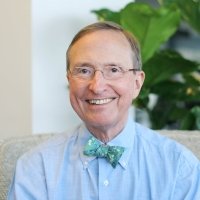Putting Conservation in Context: Social Science Tools for Conservation Practitioners

The Community Conservation Coalition, in conjunction with the Environmental Change and Security Project, hosted a reception at the Woodrow Wilson Center to celebrate the launch of a CD-ROM titled Putting Conservation in Context: Social Science Tools for Conservation Practitioners. Founded in 1999, the Community Conservation Coalition (CCC) is a Washington, D.C.-based forum comprised of diverse organizations interested in the human dimension of biodiversity conservation worldwide. Member organizations include: Conservation International; Environmental Health Project; International Resources Group, Ltd.; Jane Goodall Institute; John Snow, Incorporated; Population Action International; Population Reference Bureau; The Nature Conservancy; Rojas International, Associates; U.S. Agency for International Development; and World Wildlife Fund.
Speakers Dr. Thomas Lovejoy (Heinz Center), Judy Oglethorpe (World Wildlife Fund), Eckhard Kleinau (Environmental Health Project) and Connie Campbell (USAID) discussed the CCC's goals and the new CD-ROM toolkit for conservation practitioners. Dr. Thomas Lovejoy explained that conservation is inherently a social issue, stating "the human species…is probably better than any other in changing the carrying capacity of the environment for ourselves, and it's always driven by social interaction, perceptions of needs, human demographics and the like. So everybody working in this area knows that they have to deal with the social aspects where conservation work is occurring." Judy Oglethorpe agreed that population, environment, and development are inextricably linked. In fact, the CCC formed to explore these relationships and to promote the involvement of local communities in conservation projects.However, integration across sectors is not easy. The CCC, with the support of 30 other organizations, put together the CD-ROM to help practitioners design projects that recognize the linkages among conservation, population and development and consider the human dimensions of their efforts. For example, Connie Campbell told the audience about an Ecuadorian woman who emphatically argued at the Durban World Parks Congress that "indigenous people have to have the right to say ‘no' to protected areas." The CD-ROM includes lessons on using participatory approaches to conservation, conflict resolution tools, and communication skills to resolve situations to the benefit of all stakeholders. In addition, the CD-ROM contains over 100 case studies, tools, and resources that practitioners can draw on to enhance the quality of their conservation efforts.
Drafted by Shannon Green and Meaghan Parker.
Speakers

Hosted By

Environmental Change and Security Program
The Environmental Change and Security Program (ECSP) explores the connections between environmental change, health, and population dynamics and their links to conflict, human insecurity, and foreign policy. Read more
